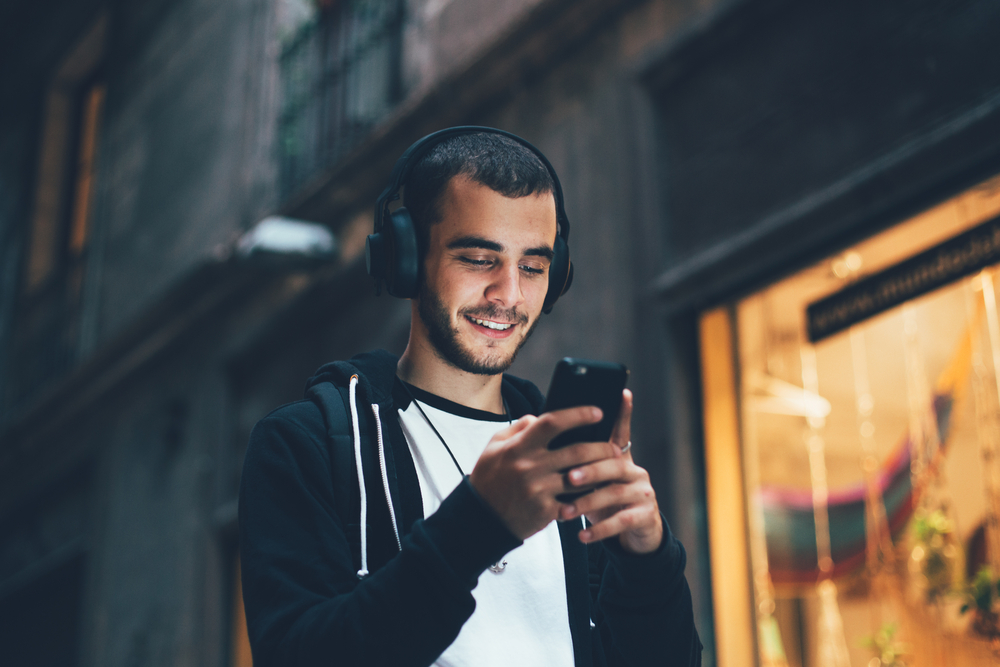Meet James, a Say hello to music fan who seamlessly integrates Spotify into his work routine, switches over to Pandora during his workouts, and curates playlists for every occasion imaginable, from cardio programs to cooking and even gaming. He’s seldom seen without his headphones, which have become an integral part of his day-to-day life, turning every moment into an individualized audio adventure. James takes comfort and joy in the captivating world of music, but the very source of his happiness might be harming his cherished ability to hear without him realizing it.
There are safe ways to enjoy music and ways that are more hazardous to your hearing health. Regrettably, many of us tend to incline towards the latter.
What is the link between extended exposure to music and hearing damage?
As time pass, loud noises can bring about deterioration of your hearing abilities. We’re used to thinking of hearing loss as a problem related to growing old, but more and more research suggests that it’s actually the build-up of noise-related damage that is the issue here and not anything inherent in the process of aging.
Younger individuals are more sensitive to noise-induced damage as their ears are still in the developmental stage. However, teenagers tend to disregard the possible risks of excessive noise over time. An increasing amount of young people are experiencing hearing loss as a result of frequent use of loud headphones.
Is it possible to enjoy music safely?
Unregulated max volume is clearly the” dangerous” way to listen to music. There is a way to listen to music more safely, which usually means decreasing the volume. The suggested safe volume levels are normally as follows:
- Adults should limit their device listening time to 40 hours or less and ensure the volume remains under 80 dB.
- For Teens and Minors: You can still listen for 40 hours, but keep the volume level lower than 75 dB.
Breaking it down, you’re dealing with about 5 hours and 40 minutes of listening each day. Though it may seem excessive, the time can pass surprisingly fast. Even still, most individuals have a pretty solid concept of keeping track of time– it’s something we’re taught to do successfully from a very young age.
The more challenging part is monitoring your volume. On the majority of smart devices, computers, and televisions, volume is not computed in decibels. It’s measured on some arbitrary scale. Perhaps it’s 1-100. But maybe it’s 1-16. You may not have any clue what the max volume on your device is, or how close to the max you are.
How to effectively monitor your music volume
To deal with this issue, numerous free noise tracking applications are available for both iPhone and Android devices. These apps supply real-time insights into ambient noise levels, enabling users to adjust their music volume accordingly.
That’s why most hearing specialists recommend the use of one of many free noise monitoring apps. These apps– extensively available for both iPhone and Android devices– will give you real-time readouts on the noises around you. That way, you can keep track of the dB level of your music in real time and make adjustments.
A volume comparison: garbage disposals and beyond
As example, 80 dB is approximately equivalent to the noise emitted by a typical garbage disposal or dishwasher– audible, yet not excessively loud. Recognizing this standard is essential, as it represents the threshold beyond which auditory damage becomes a substantial danger.
It’s important to exercise heightened caution when noise levels go above this critical point. Consider reducing exposure to overly loud music by indulging in certain tracks at full volume rather than indulging in complete albums.
Extended exposure to loud sounds can lead to hearing problems, including ringing in the ears, or tinnitus, and potentially permanent damage to one’s hearing. By being mindful of when our ears are at risk, we allow ourselves to make informed decisions in order to encourage safer listening habits.
Set up an appointment for a hearing evaluation
For better prioritization of your hearing health, it is recommended to contact a hearing specialist to book a thorough hearing test. Proactive measures such as routine assessments can detect any potential problems early on, allowing for timely interventions and personalized suggestions to safeguard your vital sense of hearing.
